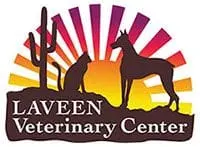Can Cats Eat Fruits and Vegetables?
Think twice before feeding your cat a healthy snack. While it's a great idea to give them these nutrients, not all fruits and veggies are safe for cats to eat. You don’t want the wrong snack to make your cat vomit, upset his stomach or worse.
Remember this: Always consult your vet before giving your pet a new food item, especially if he/she has a medical issue. And go easy on all treats and snacks as those extra calories do add up.
This is the list of fruits and vegetables that you should NEVER feed to your cat:
1. Onions, Garlic and Chives
Onions, garlic and chives are not safe to give your cat. These items can damage red blood cells, leading to life-threatening anemia. And if you think garlic is a natural flea and tick remedy, think again. There's no evidence that garlic is an effective treatment, and it's not worth the harm it could cause your kitty. Talk to a vet at Laveen Veterinary Center about Bravecto if your cat is having a flea/tick issue.
2. Grapes and Raisins
Small and yummy, grapes and raisins seem like they'd be the perfect healthy snack for cats. But these fruits can cause sudden kidney failure in dogs, and reports suggest that they may cause a similar reaction in cats. Signs of toxicity include vomiting, diarrhea and lethargy. To be safe, it's probably best to stick with other options that are vet approved.
3. Uncooked Vegetables
Before you feed your cat safe veggies like carrots, asparagus, broccoli, green beans or winter squash, reach for the steamer or microwave and cook them. Cats risk choking on raw vegetables and can have trouble digesting them.
4. Avocado
But, it's the good fat. But..not for your cat! Feeding your cat avocado may cause vomiting and diarrhea.
5. Walnuts and Macadamias
While these nuts are great snacks and taste so yummy in desserts, they are not for your cat to eat. Feeding walnuts or macadamia nuts to your cat will affect the nervous system and muscles, causing weakness, depression, vomiting, incoordination, tremors, and elevated body temperature. When in doubt, leave the nuts out!!
6. Fatty foods
While "fatty foods" may not directly relate to fruits and veggies, it's important to know that foods with high-fat content are a no-no when it comes to your furry feline. Feeding fatty foods to your cat may cause vomiting, diarrhea, abdominal pain and pancreatitis (life-threatening condition where the organ of digestion releases massive amounts of digestive enzymes into the intestinal tract).
If you have any questions about what your cat CAN or CAN'T eat, please give us a call at Laveen Veterinary Center at 602-559-9600.
Some information taken from www.vetstreet.com.


